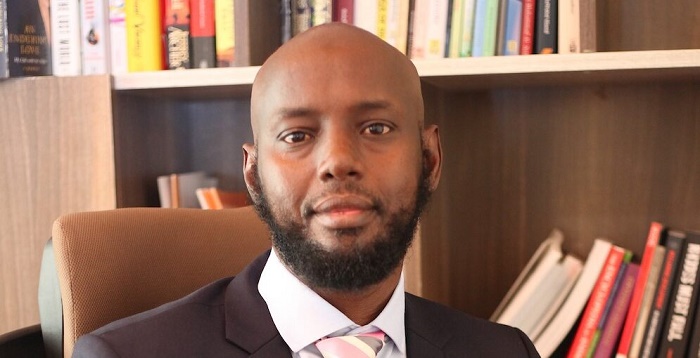Carbon markets could unleash 1.5 to 2.5 gigatonnes of new emissions annually, or more than all of Africa’s current fossil fuel and agricultural emissions combined, a new policy brief by African climate think tank, Power Shift Africa, shows.

The brief, titled “Why Carbon Markets Are a Dangerous Distraction for Africa”, is produced in collaboration with a global team of climate experts and scientists, and exposes how uncontrolled carbon market schemes fuel pollution, delay genuine climate solutions, and let wealthy nations off the hook while saddling Africa with lasting harm.
The damning report has been endorsed by 21 African organisations, including the African Forum and Network on Debt and Development (AFRODAD), Alliance for Food Sovereignty in Africa (AFSA), Green Faith Africa, and the African Women’s Development and Communication Network (FEMNET).
It shows that carbon markets actually lead to further carbon pollution, delay real climate solutions, enable corporate greenwashing, and disproportionately burden Africa while allowing wealthy nations and industries to evade meaningful emission reductions.
Mohamed Adow, Director and Founder of Power Shift Africa, and lead author, said: “Carbon markets are nothing more than a smokescreen for polluters. They allow corporations to keep burning fossil fuels while claiming climate responsibility through offset purchases. This does not reduce emissions but simply shifts the burden onto
Africa, where communities suffer the most from climate change. Instead of relying on financial schemes that serve elite interests, we need direct public investment in clean energy, adaptation, and real emissions reduction strategies.”
Citing recent reports by a growing body of scientific research into the markets, the report argues that carbon markets, especially voluntary ones, act as “pollution permits” by allowing corporations to continue burning fossil fuels under the guise of environmental responsibility. By commodifying avoided or stored carbon, these schemes transfer control over Africa’s land and resources to global and local elites, undermining development while reinforcing inequalities.
The authors cite the European Union Emissions Trading System, which missed early reduction targets, as well as voluntary carbon schemes that have failed to drive meaningful price signals or systemic change. They warn that initiatives such as the African Carbon Markets Initiative (ACMI) could lead to 1.5 to 2.5 gigatonnes of new emissions annually, and that, rather than relying on offset-based mechanisms that perpetuate inequality and greenwashing, African countries should prioritise direct, accountable climate finance solutions.
Suggesting alternative sources of finance, the authors are now calling for increased public funding, debt cancellation, climate reparations, tax justice, and community-led adaptation projects, noting that these will ensure climate action serves the needs of local populations rather than financial intermediaries.
In this regard, the report proposes the establishment of national climate funds governed transparently and inclusively, allowing African nations to retain sovereignty over their climate strategies. It notes that community-led agroecological approaches, for decades the backbone of Africa’s subsistence farming, combined with decentralised renewable energy projects and sustainable land-use models are vital alternatives to the market-driven solutions that have failed to deliver real progress.
Jason Braganza, Executive Director, African Forum and Network on Debt and Development (AFRODAD), said: “Wealthy nations and major corporations must take direct responsibility for their emissions rather than outsourcing climate solutions to Africa through carbon trading. These markets do not serve African interests; they entrench inequalities, misallocate resources, and undermine our sovereignty over land and climate finance. Africa must demand climate reparations and debt relief, not false solutions designed to benefit polluters while keeping us locked in cycles of dependency.”
Bridget Mugambe, Programmes Coordinator, Alliance for Food Sovereignty in Africa (AFSA), said: “Carbon trading mechanisms are essentially pollution tickets for those who can afford to pay, allowing the biggest polluters to continue emitting while passing the burden onto vulnerable communities. They reinforce power imbalances between the Global North and South, enabling developed nations to buy offsets instead of cutting emissions at the source leaving African countries to bear the devastating costs.
“Worse still, protectionist measures tied to these schemes often infringe on communities’ land access and ownership rights, threatening livelihoods, food sovereignty and deepening injustice. This is climate injustice in its purest form. Africa must strongly reject these false climate solutions and instead demand direct financing for sustainable energy, resilient food systems, and disaster preparedness that serve our people not corporate shareholders.”
Meryne Warrah, Director GreenFaith Africa, said: “Carbon markets are a distraction from the real work of transitioning to clean energy. Africa should not be a carbon sink for industries that refuse to change their business models. We need investments in renewables, decentralised power grids, and green jobs, not speculative offset schemes that do nothing to curb pollution. True climate justice demands an end to emissions, not a market-driven system that only benefits polluters.”
Memory Kachambwa, Executive Director, African Women’s Development and Communication Network (FEMNET), sad: “Africa deserves genuine climate solutions, not mechanisms that prolong fossil fuel dependence. Carbon markets offer corporations an escape route to continue polluting while claiming sustainability. We should be focusing on community-led adaptation, agroecology, and national climate funds that center local needs of frontline indigenous communities and women in particular first. The fight against climate change is about justice, and carbon markets undermine that by allowing the wealthy to shift responsibility onto those least responsible for the crisis.”
Mohamed Adow, Director and Founder of Power Shift Africa, said: “The illusion that carbon markets reduce emissions is dangerous. These schemes allow industries to claim net- zero status while continuing polluting activities. Meanwhile, African nations are left to deal with the environmental consequences. The climate crisis requires urgent systemic change, not financial mechanisms that permit business-as-usual emissions. We need bold action that prioritises local solutions, public climate finance, and equitable policies that serve communities rather than corporate profits.”
